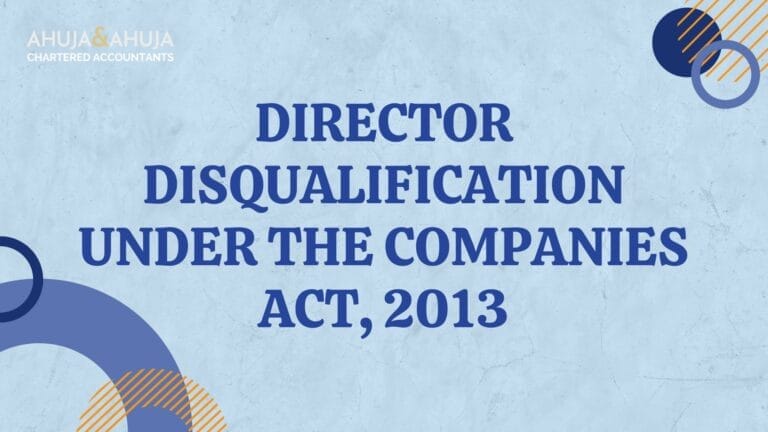Farmer Producer Companies in India: A Comprehensive Guide
In the diverse and extensive agricultural landscape of India, smallholder farmers face a myriad of challenges that hinder their productivity and profitability.
These challenges range from limited access to markets and resources to difficulties in achieving economies of scale.
In addressing these challenges, the concept of Farmer Producer Companies (FPCs) has emerged as a beacon of innovation and collective strength.
An FPC is essentially a hybrid between a private limited company and a cooperative society that operates under the Companies Act, 2013.
It provides a platform for farmers to aggregate their resources, access new markets, and improve bargaining power without the burden of excessive regulation that affects traditional cooperatives.
Background
Historically, the average operational farm size in India has been on a decline, creating significant management and operational challenges, especially for smallholder farmers.
These farmers often find themselves at a disadvantage due to the lack of economies of scale, which affects their ability to access advanced technologies and markets where they can sell their produce at fair prices.
Recognizing these challenges, the concept of Farmer Producer Companies was institutionalized under the Companies Act, aiming to bring together farmers to leverage collective strength.
This initiative has been supported by various governmental schemes, notably in the union budget of 2019-2020, which announced the formation and promotion of FPOs under a new Central Sector Scheme with significant financial allocations.
Understanding Farmer Producer Companies
What is a Producer Company?
A Producer Company is a legally recognized group of farmers who aim to improve their incomes through collective efforts in production, harvesting, procurement, grading, pooling, marketing, and selling.
Under the legal framework established by the Companies Act, 2013, an FPC can operate as a private limited company, providing members with a more flexible approach compared to traditional cooperative societies.
Objectives of Producer Companies
The primary objectives of a Producer Company include but are not limited to:
- Production and harvesting: Managing processing activities such as drying, distilling, brewing, venting, canning, and packaging.
- Marketing and sales: Streamlining processes for better price discovery and market access.
- Technical and consultancy services: Offering education, training, and R&D for improved agricultural practices.
- Power and resource management: Engaging in the generation, transmission, and distribution of power, water resources management, and land revitalization.
These objectives collectively aim to bolster the economic strength of its members and enhance their negotiating power in the market.
Formation and Structure
Forming a Farmer Producer Company is a strategic decision that involves several key steps and adheres to a structured process. The formation involves a minimum number of members, which varies based on geographic and demographic criteria.
According to the guidance provided in the 2019-2020 Union budget, a Producer Company should have at least 300 members in plain areas and 100 members in northeastern and hilly regions.
Membership Criteria and Application Process
To become a member of an FPC:
- Eligibility: The individual should be a primary producer, such as a farmer, milk supplier, fisherman, etc., with no conflicting business interests.
- Voluntary Membership: Membership is voluntary, ensuring that any eligible person can join while agreeing to accept the responsibilities and duties that come alongside.
- Application: Interested individuals need to file an application, abiding by the Articles of Association AOA.
Voting Rights and Share Capital
Each member of an FPC has equal voting rights, irrespective of the amount of shares held, embodying the principle of “one member, one vote.” This structure is crucial in maintaining fairness and equality within the company.
- Share Capital: The share capital of an FPC consists solely of equity shares, and shares are owned by the members in proportion to their patronage or involvement with the company.
- Transferability of Shares: Shares can be transferred to another active member with prior approval from the board, ensuring the company remains in the hands of those actively involved in its core activities.
Operational Mechanisms
Board of Directors (BOD)
The management of an FPC is overseen by a Board of Directors, which is elected by the members. The number of directors should be between 5 and 15, with positions held for up to 5 years.
- Director Responsibilities: Directors are responsible for general corporate governance, making policies, and overseeing financial and strategic decisions.
- Election of Directors: The election process for directors should occur within 90 days of registering the FPC.
CEO and Company Secretary
The role of the CEO in an FPC is usually filled by a person outside the membership to maintain neutrality and professionalism. The CEO handles the day-to-day operations and administration of the company.
- Company Secretary: If the annual turnover of the FPC exceeds 5 crore INR, appointing a full-time company secretary becomes mandatory. This role includes maintaining records, ensuring compliance with statutory requirements, and managing board procedures.
Compliance and Regulatory Requirements
Ensuring compliance with legal and regulatory requirements is crucial for the smooth operation of an FPC. This includes:
- Annual General Meetings (AGM): FPCs are required to conduct their first AGM within 90 days from the date of incorporation. Subsequent AGMs must be held annually within 15 months of the previous AGM.
- Filing Requirements: FPCs must file annual returns and financial statements as specified under the Companies Act, such as AOC-4 & MGT-7 forms.
Financial Management and Member Benefits
Farmer Producer Companies are designed to provide financial advantages to their members through collective efforts in agricultural and related activities.
Here’s a look at how financial transactions are typically managed and the various benefits members can expect:
Dividends and Patronage Bonus
- Dividends: FPCs can issue dividends to their members, derived from the profits generated by the company. The rate of dividends is decided by the Board of Directors and approved during the Annual General Meeting.
- Patronage Bonus: Members are also eligible to receive a patronage bonus, which is proportional to their contribution to the company, be it through labor, produce, or other forms of participation. This ensures that the benefits derived from the company are distributed fairly among those who contribute.
Member Loans
- Short-term and Long-term Loans: FPCs provide credit facilities to their members for both short-term needs (up to six months) and long-term investments (up to seven years), with terms specified under the provisions laid out in the Companies Act. These loans are crucial for members who require financial support for seasonal planting or wish to invest in new technologies.
Benefits to Members
Being a member of an FPC not only provides financial benefits but also offers several non-monetary advantages:
- Access to Markets: Members can access wider markets through collective selling and greater bargaining power, potentially earning better prices for their produce.
- Access to Resources: FPCs can purchase resources like seeds, fertilizers, and equipment in bulk, reducing costs for individual members.
- Training and Education: FPCs often provide training sessions and educational programs to help members improve their farming practices and stay updated with the latest agricultural developments.
Governance and Compliance
Effective governance is vital for the sustainability and growth of any Farmer Producer Company. Here’s an overview of the various governance mechanisms and compliance requirements:
Board of Directors and Management
- Powers and Functions of the BOD: The Board is responsible for setting dividends, approving budgets, creating policies, and overall management of the FPC.
- CEO and Management Team: The CEO, appointed by the Board, manages the day-to-day operations with the support of a management team, ensuring efficient execution of board decisions and operations.
Compliance Requirements
- Regulatory Filings: FPCs are required to adhere to strict regulatory filings, including annual financial statements and returns. Failure to comply can lead to penalties or legal issues.
- Annual General Meetings (AGM): Regular AGMs must be held to discuss and approve budgets, dividend distributions, and other crucial matters with members.
Liabilities of Directors
Direct this address, directors have a significant responsibility to ensure compliance with laws and regulations. Any breach can result in personal liabilities, emphasizing the importance of diligent and ethical management.
Case Studies of Successful Farmer Producer Companies
Case Study 1: Amravati Farmer Producer Company
- Location: Maharashtra, India
- Activities: Specializes in the production and marketing of orange and soybean crops.
- Impact: Enhanced market access and improved crop prices for over 500 farmer members. Amravati FPC has also invested in cold storage facilities, significantly reducing post-harvest losses.
Case Study 2: Shivaganga Farmers Producer Company
- Location: Karnataka, India
- Activities: Focuses on organic vegetables and fruits, promoting sustainable farming practices.
- Impact: Provides technical training on organic certification and marketing strategies. It has helped members achieve a premium price for their organic produce, benefiting over 300 farmers.
These examples illustrate how FPCs empower local farmers by pooling resources, accessing better markets, and implementing effective business strategies that promote sustainability and profitability.
Future Prospects and Governmental Support
The potential for growth and development in the FPC sector is significant. With continued support from the government, as evidenced by initiatives like the Central Sector Scheme for the Formation and Promotion of 10,000 new FPOs, there is a clear path toward enhanced collective farming efforts.
These schemes not only provide financial support but also extend technical and managerial guidance to ensure the success and sustainability of FPCs.
Conclusion
Farmer Producer Companies (FPCs) represent a transformative approach to agriculture in India, particularly for smallholder farmers who face numerous challenges in a competitive global market.
By fostering an environment where farmers share both resources and risks, FPCs play a pivotal role in ensuring economic stability and improving the livelihoods of their members.
The collaborative model of FPCs not only strengthens market access and bargaining power but also facilitates a more equitable distribution of benefits.
With their adaptability to various agricultural sectors and support from government policies, Farmer Producer Companies are poised to continue their significant contribution to India’s agricultural progress.
As these entities navigate through the complexities of modern agriculture, their success stories provide a blueprint for empowering farmers and revitalizing rural economies across India, heralding a new era of farmer prosperity and agricultural sustainability.
Disclaimer
The materials provided herein are solely for educational and informational purposes. No attorney/professional-client relationship is created when you access or use the site or the materials. The information presented on this site does not constitute legal or professional advice and should not be relied upon for such purposes or used as a substitute for professional or legal advice.







